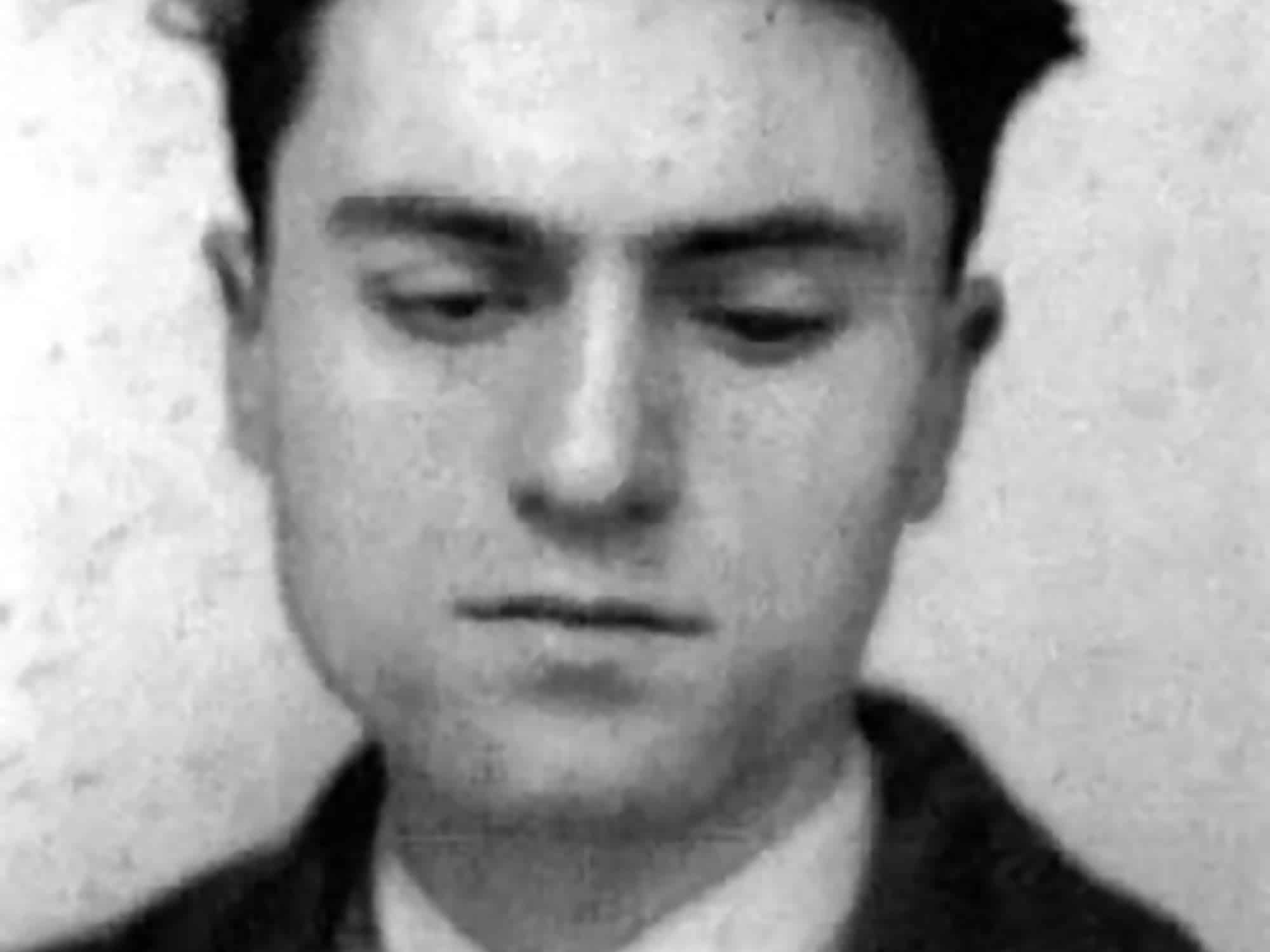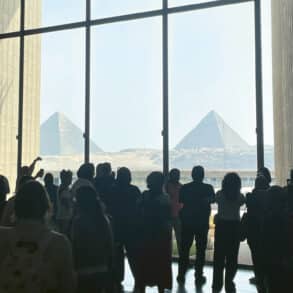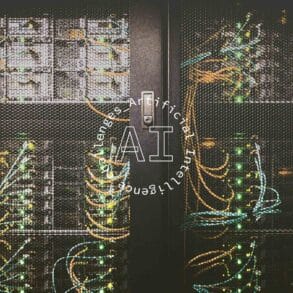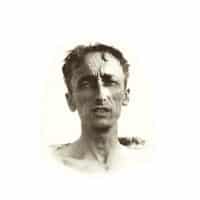Jacques Lusseyran lost his eyesight as a child, but he learned to see with his inner senses. As a resistance fighter in occupied Paris and a concentration camp prisoner in Buchenwald, he became a light for many during the darkest of times. To mark the 100th anniversary of his birthday, the Goetheanum stage held a reading from his work Das wiedergefundene Licht [And There Was Light] with Richard Schnell (reading), Fritz Nagel (music), and Barbara Schnetzler (sculpture).
Philipp Tok: Why did you choose such a dark subject of war and torture?
Richard Schnell: The brightest is revealed in the darkest. Lusseyran’s story is not just dark—it is, above all, enlightening. It is poignant proof that you can counter the darkness with something—an inner light. And this light can be a source of confidence, compassion, and love.
An inner light?
Yes, in 1932, when he was only seven years old, Jacques Lusseyran had a serious accident. The arm of a pair of glasses pierced his right eye, and the pressure of the glass destroyed his left eye. He lost his sight. The boy’s world collapsed, but in the darkness, he made a momentous discovery: “There is a light inside me that nothing can extinguish. I discovered light and joy at the same moment.” A deeper reality was revealed to him—not just a heightened vision but a moral source of existence as well. Ten years later, a serious bout of measles led to his decision to no longer accept the hopelessness and despondency of five million silent people in occupied Paris. He founded the resistance group “Volontaires de la Liberté.” They printed leaflets, organized acts of sabotage, and hid the persecuted. “The illusion of being important—not one of us had that. The certainty of being necessary—we all had that.” The group was discovered in 1943, followed by months of interrogation and torture by the Gestapo. But even in the Buchenwald concentration camp, he did not lose his courage to face life: “I feel that we are stronger than the darkness around us.”
What does “seeing without eyes” mean?
So much! Lusseyran developed an unexpected sensitivity. He describes it as a “tactile vision,” a holistic perception of the world through the interaction of all senses. Faces, objects, and rooms appear in his mind as if on an internal radar screen, often more clearly and completely than earlier, when he saw with his eyes. But the boundaries between inside and outside also dissolve. The experience of a deep connection with all living things becomes the source of his confidence. “When I walk through the forest, I feel the trees around me like friends,” he reports. His hearing also becomes sharper: “When I enter a room, I hear the presence of people even before they speak. Every person carries a unique melody within them that resonates out into the room.”
Can he keep his light in the darkest hours?
In Buchenwald, he is put to a tough test. When his friends are relocated, and he is left alone, he is overcome by despair. He feels darkness taking hold of him. He begins to resent the others and becomes bitter and withdrawn—his new sense fails. There are times when the light fades. “That is always the case when I am afraid. What the loss of my eyes could not do, fear does: it blinds me. I am literally enveloped in fog, in smoke. But malice has the worst effect. I cannot afford to be jealous and irritable, because a blindfold immediately covers my eyes, a black hole opens up around me, and I am helpless.” He must not give the violence within himself any space if he wants to keep the light in his soul.
During an illness that lasts several weeks and deprives him of his hearing, he withdraws completely into himself. In that isolation, he has a mystical experience. “Life had become a substance within me. It permeated my prison with a force that was a thousand times stronger than me. It came towards me like a bright, shimmering wave, like a caress of light.” Aware of his impending death, he once again perceives a light, the breath of God. He takes hold of himself and his life again and leaves the infirmary on his own two feet. From now on, no one steals his bread or soup; what’s more, an SS man gives him an extra ration of bread every day. “I see a deep sadness in him and understand that even in the darkest soul, there is still a spark of humanity.” Despite hunger, violence, and brutality, Lusseyran shines. He secretly organizes French courses, informs people about the war situation, and listens to fellow prisoners. In the evenings, they recite poems, philosophize, and share their dreams. “That helps us keep our souls alive.”
What does his vision have to do with you?
Quite a lot! His most important advice is that every person carries this light within them, this clarity, this inner compass. We just have to learn to trust it, especially in times of darkness. He is not an aloof saint but a sensitive realist. He knows about the destructive forces but refuses to give them the last word. “Darkness has no existence of its own,” he says. “It is only the absence of light. It is the same with evil—it has no substance; it is the negation of good. It is so easy to become bitter in the face of suffering. But in doing so, we allow the darkness to win. Our task is to decide again and again for life, for light.” “My word!” he says, “The air around my friends was different. You could smell joy here. Even when they were sad, even when they spoke of their deaths, it smelled good; it gave you a boost. War is a dirty business, but I wish people could at least manage, in peacetime, to be like my friends were in this war.”
And why offer a reading that lasts several hours?
It was a chance to immerse ourselves in the world of an extraordinary person. Lusseyran is someone who breaks down boundaries from within: between seeing and not seeing, light and shadow, good and evil. He offers courage for humanity—against all odds. Listening to him means expanding our own being. He invites us to look deeper, to listen more closely both to things and to ourselves.
Translation Laura Liska
Image Jacques Lusseyran









